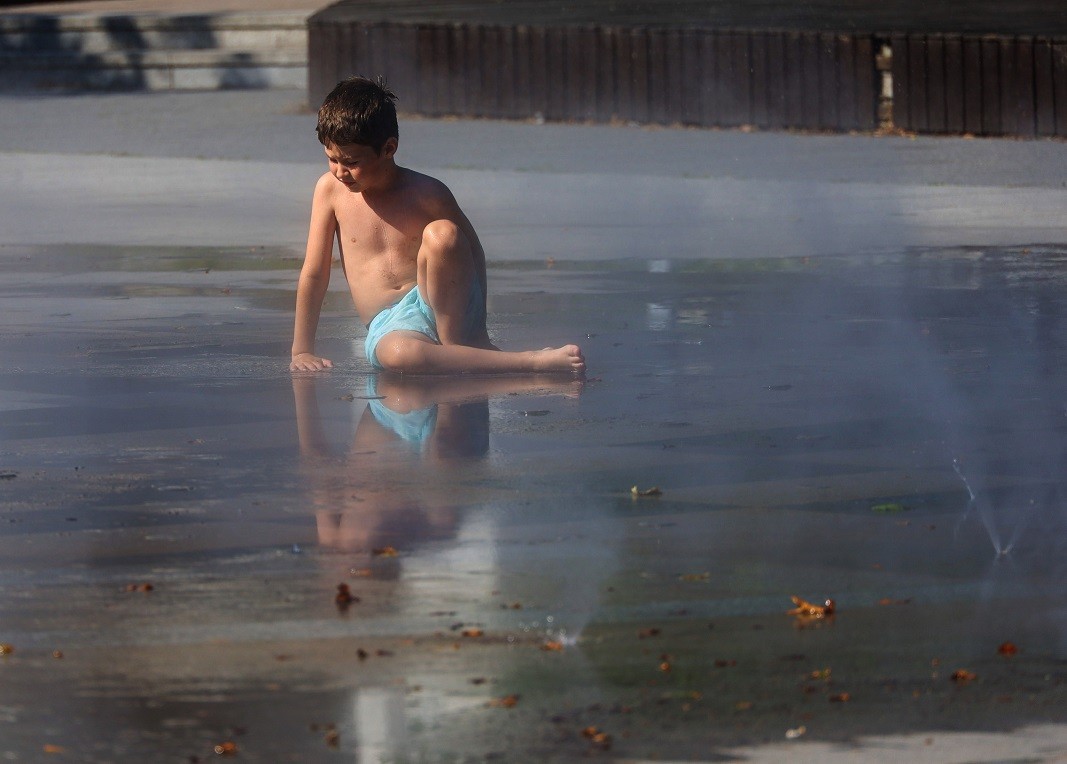Any temperature extremes immediately raise the question: Are they caused by climate change or have our human brains erased the memory of something that has caused us discomfort? That is why, in summer when temperatures start to hit 40° C and over, we try to find the answer to the question: How often have we had phenomena such as these in the past?
Meteorologists say Friday will be the hottest day this week, with temperatures in the hottest town in Bulgaria, Sandanski, hitting 40°C.
“It is normal to have temperatures as high as that in summer,” says Anastasiya Stoycheva from the Bulgarian Academy of Sciences’ National Institute of Meteorology and Hydrology. “If the season is cool, that would be more unusual than having 40° C because that is a very rare occurrence in this country.”
On 5 July in 1916, the town of Sadovo in Southern Bulgaria hit an absolute record, 45.2° C, Anastasiya Stoycheva says, and goes on to make mention of other years with record-high temperatures – 1927, 1965, 1988, and the year 2000, when summer was among the hottest and driest.
“At this time it does not look like we are going to break this absolute record for the country,” Anastasiya Stoycheva goes on to say. “We are most likely to see temperatures above 40 in the Danubian Plain, in the Upper Thracian Valley, but on the whole, we are not expecting to see temperatures rise to 45° C or over this summer, though they will continue above the climatic norms.”
During these, and the expected scorching days to come, the Bulgarian Red Cross says we must avoid going out during the hottest part of the day, and if we have to, we must always wear a hat, clothes in light colours and sunscreen. The General Labour Directorate urges employers to take steps to reduce risk in the workplace. When working outdoors more breaks are recommended, as is a change of the work schedule – an absolute must today when code orange for dangerous weather is in place for a large part of the country. 
And as heat affects even the healthiest among us, Anastasiya Stoycheva says we should remain in the shade during the afternoon:
“When we are in a town or a city during these longest days of the year, temperatures are highest between 4 and 6 PM,” Anastasiya Stoycheva says. “That is the time when the sun has heated up the air which is close to the Earth’s surface. We feel this heat at a height of approximately 2 metres, and that is how it is measured – inside an instrument shelter, in the shade, protected from direct sunlight, becausethe temperature registered on a heated asphalt surface is much higher.”
During the scorching days it looks like we are going to have next week, we should drink more water to avoid dehydration.
“The recommended amount is 30 milliliters per kilogram of our body weight, plus one more liter,” explains Dr. Kostadin Sotirov, chairman of the Association of General Practitioners in Plovdiv. “This means drinking around 2-3 liters evenly through the day, not in one go in the morning or in the evening. When we go out we must always have a bottle of water with us and drink one glassful every hour.” 
We all feel discomfort during a heatwave, but how does it affect people with health issues?
“People with chronic ailments – most of all high blood pressure, feel better when the weather is hot because heat expands the blood vessels, which is a natural mechanism for bringing blood pressure down,” Dr. Kostadin Sotirov says. “But if that happens abruptly, they could black out, fall and hurt themselves.”
And even though during hot spells we often drink alcohol as we relax by the sea or up in the mountain, or even when we take a break from work at home, we should never forget a simple rule – to couple the alcohol with lots of water. That holds true of coffee as well, because coffee causes dehydration. But the best thing during the hottest days would, of course, be to forget about alcohol and coffee altogether.
Interviews by Diana Doncheva, Horizont programme, BNR and Antonia Popova, BNR-Plovdiv
Text: Diana Tsankova
Translated and posted by Milena Daynova
Photos: BTA
At the Bulgarian Embassy in London, Prof. Bettany Hughes presented excerpts from the new BBC series - Wonders of Bulgaria. Prof. Bettany Hughes is the author of two episodes of the documentary. Hughes is a historian, writer, author of..
According to the Annual Report on the Health Status of Bulgarian Citizens for 2023, t he main cause of death in Bulgaria is diseases of the cardiovascular system (61.1%), followed by oncological diseases (16.5%) and diseases of the respiratory system..
In the week of St. Andrew’s Day (also known as Bears’ Day or Mechkinden), WWF is drawing attention to six orphaned bear cubs who have been given a second chance at life. The initiative is part of the "Subscribe to Nature" campaign and..
According to the Annual Report on the Health Status of Bulgarian Citizens for 2023, t he main cause of death in Bulgaria is diseases of the..
At the Bulgarian Embassy in London, Prof. Bettany Hughes presented excerpts from the new BBC series - Wonders of Bulgaria. Prof. Bettany..

+359 2 9336 661
